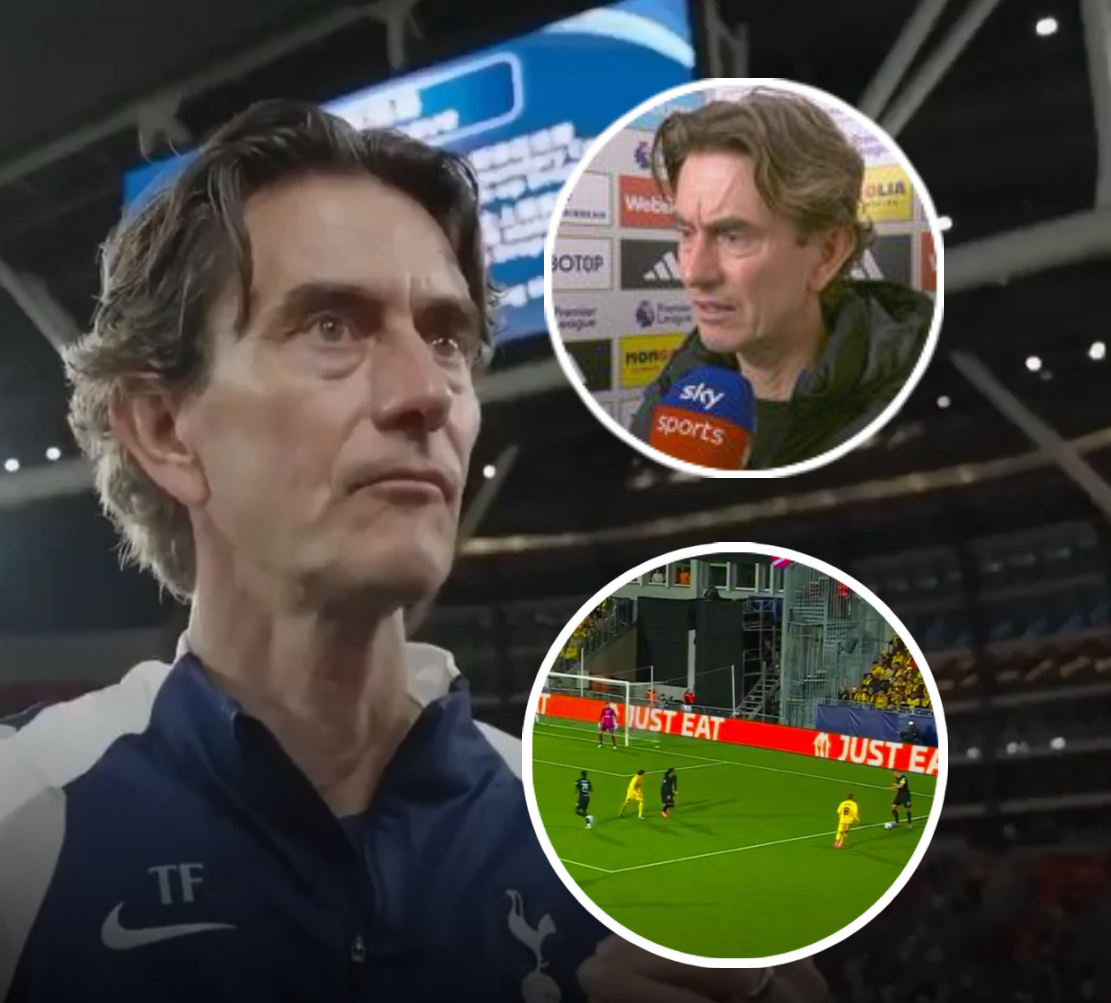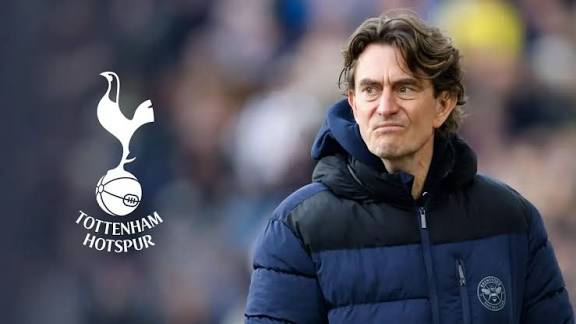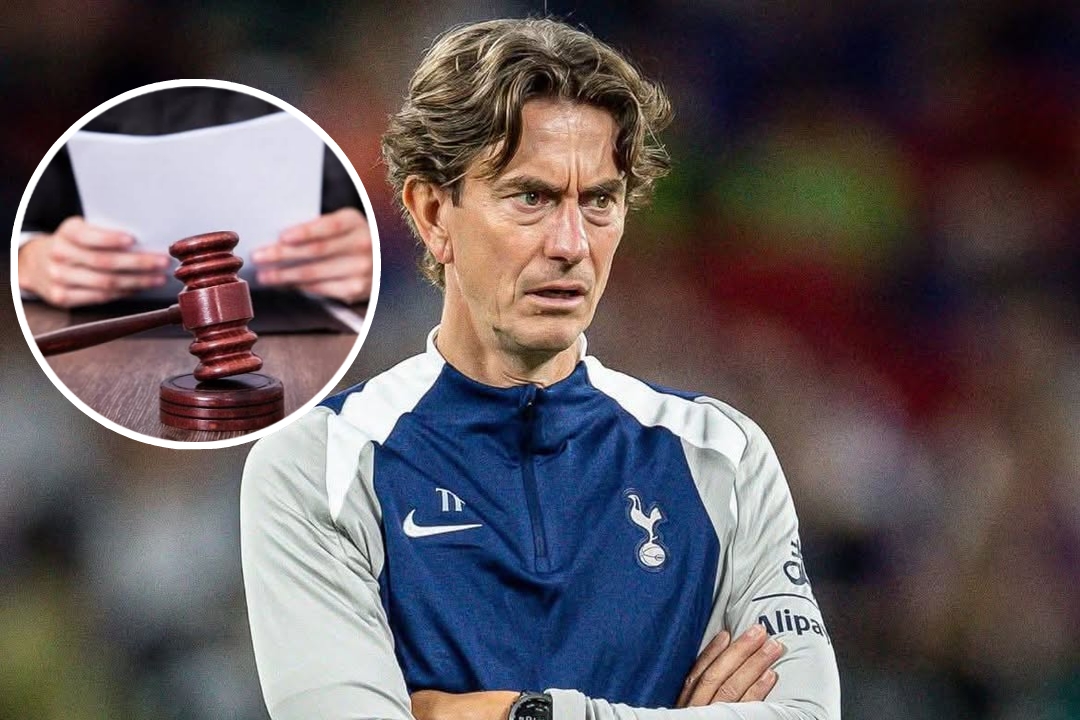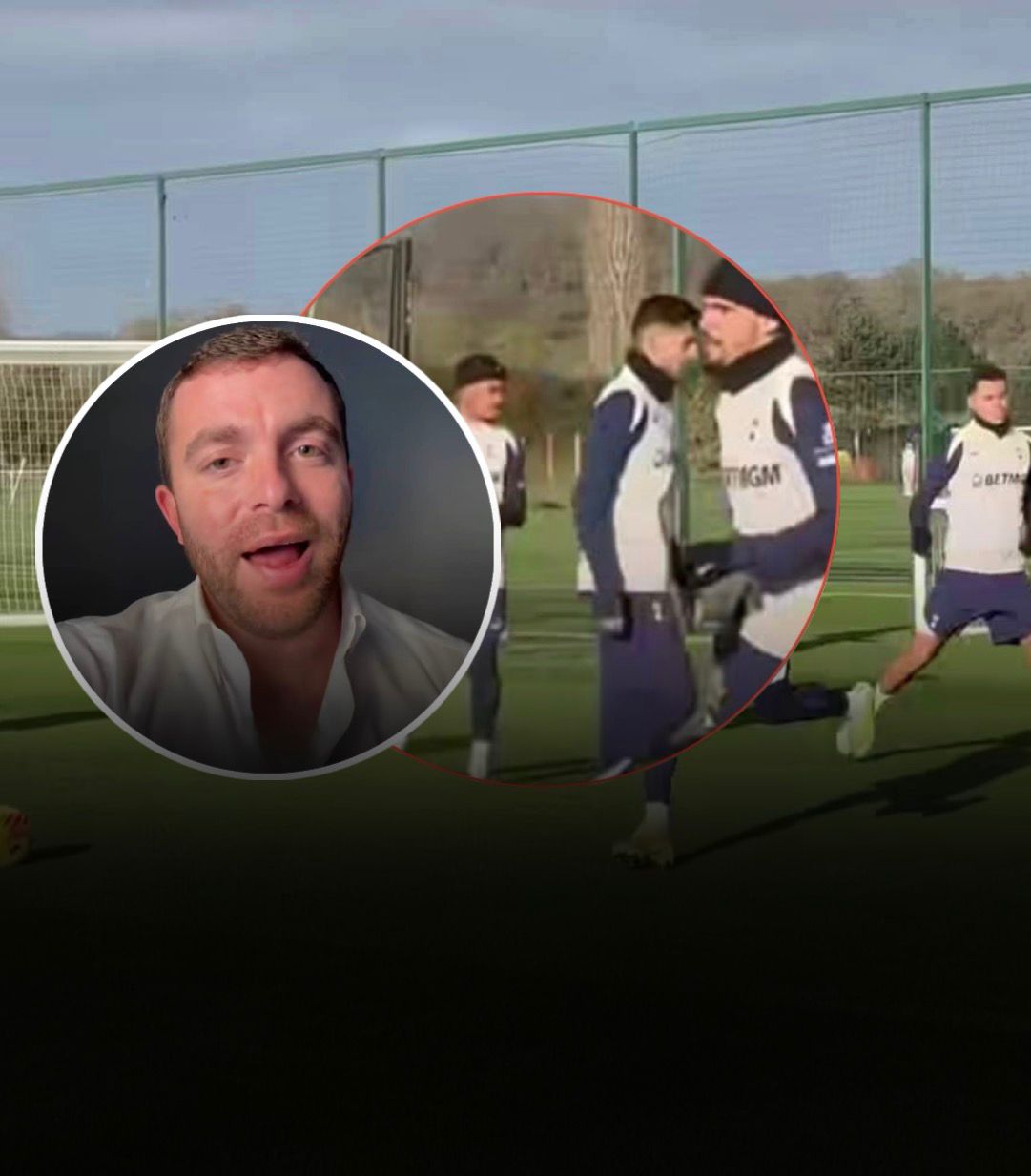TOTTENHAM FANS LET DOWN WITH THOMAS FRANK INTERVIEW AFTER HE COMPLAINED BITTERLY ABOUT ONE TOTTENHAM PLAYER, IT’S HORRIBLE
Tottenham Hotspur’s clash with Bodø/Glimt was supposed to be a chance for the North London side to make a statement in Europe. Instead, it ended in frustration as Spurs labored to a 2-2 draw against the Norwegian outfit. The game itself was disappointing enough for fans, but it was Thomas Frank’s post-match interview that has sent shockwaves through the Tottenham community.
The Danish manager openly criticized one of his own players, Djed Spence, for what he described as a “terrible performance.” Spurs fans, already frustrated with the result, have reacted angrily to the comments, calling them “horrible” and “a betrayal of the squad.”
Now, questions are swirling about dressing room harmony, Spence’s future at the club, and whether Frank’s public call-out was justified or a step too far.
A Frustrating Night in Norway
Tottenham’s trip to Bodø was expected to yield three points. Despite the unpredictable weather and artificial pitch conditions in Norway, Spurs were heavy favorites. Yet the game quickly became a struggle.
Bodø/Glimt took the lead through Jens Petter Hauge in the 53rd minute, before he doubled the home side’s advantage in the 66th. Spurs looked rattled, with defensive lapses and poor ball retention allowing the hosts far too much joy in attack.
Micky van de Ven pulled one back in the 68th minute, and Spurs rescued a point late in the game when Gundersen scored an own goal in the 89th. The 2-2 scoreline flattered Tottenham, who looked second-best for large stretches of the match.
It wasn’t just the result that angered fans — it was the manner of the performance. Sloppy, uninspired, and error-prone, Spurs looked far from a side with European ambitions.
Frank’s Interview Sparks Controversy
After the match, Thomas Frank cut a frustrated figure in his interview with broadcasters. Rather than focusing on the positives — such as the team’s resilience in fighting back to snatch a draw — he honed in on the negatives.
Specifically, he called out right-back Djed Spence, who started the game but endured a torrid evening against Bodø’s energetic wingers. Frank complained bitterly about Spence’s lack of defensive awareness, his failure to track runners, and his wastefulness in possession.
Frank is reported to have said:
“At this level, you cannot play like that. Djed gave away too much, he lost concentration, and we suffered because of it. I expect better, much better, especially in a European match where every detail counts.”
These words hit hard. While managers often critique players in private, doing so in front of cameras and fans is a different matter entirely. For many Tottenham supporters, this was a step too far.
Why Fans Are Upset
Tottenham fans are divided — some believe Frank’s honesty is refreshing, while others feel he crossed a line. The majority, however, have voiced disappointment, describing the interview as “horrible.”
One fan wrote on X (formerly Twitter):
“Publicly throwing Spence under the bus is disgusting. Manage it in the dressing room, not in front of the world.”
Another added:
“Thomas Frank is losing me already. You don’t single out players like that. Take responsibility as the coach. Horrible man-management.”
This reaction underscores a deeper issue: fans want unity and leadership. When a manager publicly blames a single player, it risks fracturing team spirit and alienating both the player and supporters.
Djed Spence: The Unfulfilled Promise
Djed Spence’s time at Tottenham has been turbulent. Signed from Middlesbrough in 2022 as a promising young wing-back, his Spurs career has stalled amid loans, injuries, and inconsistent opportunities. Many fans believe he was never truly given a fair chance under Antonio Conte or Ange Postecoglou, and now Thomas Frank’s criticism feels like yet another setback.
Spence is still only 25 and has time to fulfill his potential, but confidence is crucial for a player in his position. Public criticism from the manager could either serve as motivation or completely shatter his already fragile standing in the squad.
Some Spurs supporters now fear that Frank’s comments may signal the end of Spence’s Tottenham career before it ever really got started.
The Wider Debate: Should Managers Criticize Players Publicly?
Frank’s interview has reignited the debate about whether managers should ever single out players in public.
On one hand, honesty and accountability are valued. Fans often complain when managers give generic, sugar-coated answers. If a player performs poorly, why shouldn’t the manager say so? It shows standards are high and excuses won’t be tolerated.
On the other hand, football is as much about psychology as tactics. Public criticism can humiliate a player, destroy confidence, and create rifts within the squad. Many legendary managers — from Sir Alex Ferguson to Jürgen Klopp — have preferred to protect their players in public, saving criticism for the dressing room.
By attacking Spence openly, Frank may have thought he was sending a message about accountability. But for many fans, it came across as scapegoating, especially after a poor team performance where several players struggled.
Dressing Room Dynamics
The fallout of Frank’s comments will extend beyond the fanbase. Inside the dressing room, players will have taken note. If one of their teammates can be singled out and blamed so directly, it creates an atmosphere of tension and mistrust.
Leaders within the squad, such as Son Heung-min and Cristian Romero, may need to step in to rally the group and reassure Spence. If left unchecked, moments like this can fester, leading to divisions between the manager and his players.
It’s also a test of Frank’s man-management skills. If he follows up his comments with private reassurance and clear guidance for Spence, the situation can be salvaged. But if his remarks are left to linger, it risks pushing the player further away and sparking unrest.
What This Means for Tottenham
For Tottenham, this controversy comes at a delicate time. The team has aspirations of competing deep into Europe while also chasing domestic success. The last thing they need is internal drama overshadowing their campaign.
Frank’s blunt approach may win some supporters who demand accountability, but the backlash suggests he’s at risk of alienating a large portion of the fanbase. Spurs fans have endured years of managerial turnover, inconsistent recruitment, and disappointing results. They crave stability and unity, not public fallouts.
The spotlight will now be firmly on Frank’s handling of future matches. Will Spence be dropped completely? Will he be offered a chance to redeem himself? And will Frank adjust his communication style, or double down on his brutally honest approach?
The Road Ahead for Spence
For Djed Spence, the challenge is clear: prove the critics wrong. Whether he remains at Spurs or eventually moves on, his response to adversity will define his career.
Some fans believe this could be the turning point that either revitalizes or ends his Tottenham journey. If he bounces back with strong performances, he can rewrite the narrative. If not, he risks being remembered as yet another failed signing in Spurs’ long list of nearly-men.
What is certain is that he now has the sympathy of many supporters, who feel he was unfairly scapegoated. That backing from fans may offer some comfort as he processes his manager’s harsh words.
Conclusion
Tottenham’s 2-2 draw with Bodø/Glimt was already frustrating for fans, but Thomas Frank’s post-match comments have turned disappointment into controversy. By singling out Djed Spence for criticism, Frank has angered supporters who felt the interview was “horrible” and unnecessarily damaging.
The fallout highlights the fine balance managers must strike between honesty and protection, accountability and unity. For Spurs, the incident has created yet another layer of drama at a time when focus should be on performances on the pitch.
As things stand, the relationship between Frank, Spence, and the fanbase is under strain. Whether this is a momentary storm or the start of deeper cracks in Tottenham’s season will depend on how Frank manages the situation in the weeks ahead.
But one thing is certain: fans have made their feelings clear. They expect better results, better performances, and above all, better leadership.








Post Comment